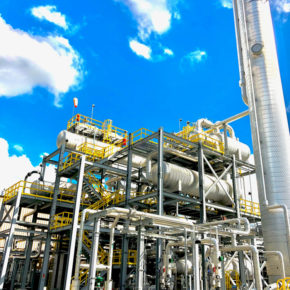
Posted on: 10. 31. 19
During Natural Gas Liquid recovery, not all materials found in NGLs are kept for production. The process of ethane rejection is quite common in the oil and gas industry, and many NGL recovery teams utilize ethane rejection mode unless they possess a contractual requirement.
Why is ethane something that so many facilities seem to pass by? How does it have an impact on oil and gas prices? Find out about this process and how the industry plans to approach it within the next few years.
Why is Ethane Rejected?
The process of ethane rejection is something that is solely practiced based on the current oil and gas market. Since ethane isn’t a portion of NGL recovery that isn’t necessarily in high demand, when the profit margin of ethane is low in a market, rejection mode becomes a requirement.
This rejection leaves ethane in the natural gas stream and is then sold as natural gas to manufacturing facilities and consumers, instead of using the product in specific exports.
Isn’t it Used for Important Reasons?
When ethane isn’t rejected, it’s used in the production of ethylene. This product is mainly used for creating plastic, antifreeze, and detergent.
Although these products are important and used throughout everyday life, the cost to extract ethane from a drilling rig is expensive, and when that cost outweighs the price of standard oil, then that’s when drill sites go into rejection mode (unless under contract with another entity).
Demand Could Rise for Ethane in the Next 5 Years
Although the cost for ethane production is high, it’s predicted that within the next few years the market will see rapid growth in demand for ethane-based products. This demand will improve ethane prices and steer the industry in the direction of restarting drilling activity and turning towards wetter gas plays.
With an increase in ethane recovery, the volume of ethane in gas streams will be dramatically reduced and increase the amount of propane recovered, which would have been wasted during the rejection process.
Get Your NGL Storage Needs From Pro-Gas, LLC
Ethane rejection is a tough subject to tackle as a production facility because the need for the product relies so heavily on the current market. However, if your facility practices NGL recovery, then storage is essential. The team at Pro-Gas, LLC has the NGL storage solutions your company needs. Our products are portable and live up to the expectations that come with storing recovered product. Get in touch with us today to find out more about our storage solutions and more!


